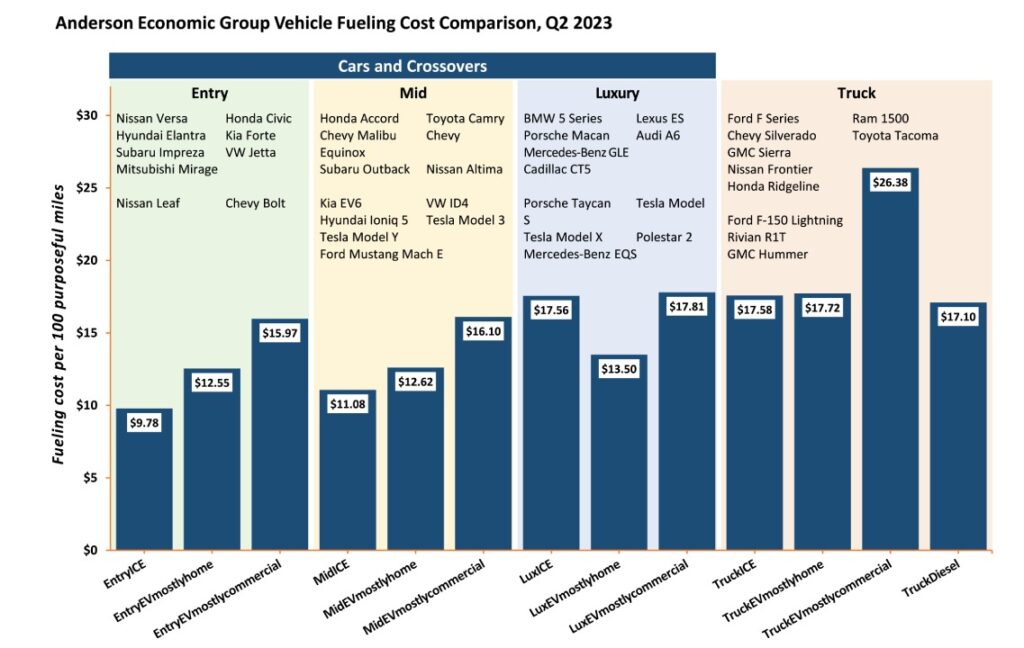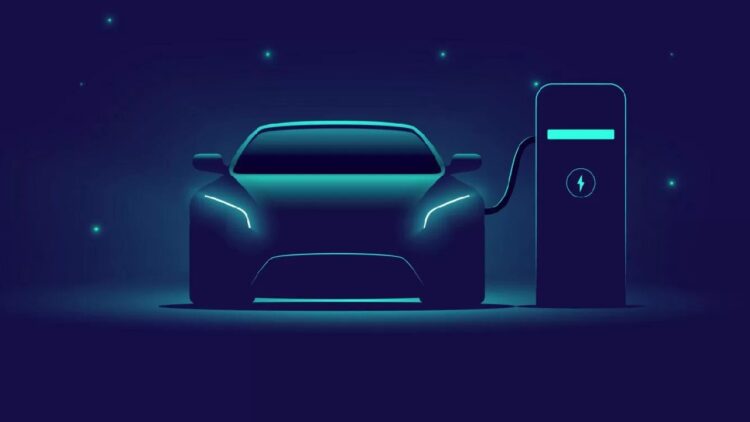In an interesting report by AEG (Anderson Economic Group), it was found that some electric cars cost more to charge than some ICE cars cost to refuel. That is quite a unique perspective. Generally, we consider that electric cars are low on running costs. In fact, that is the premise on which the entire narrative is based. However, this latest report is quite contradicting. It divides the entire market into 4 broad segments – Entry-level cars, mid-size cars, luxury cars and pickup trucks. Here are the details.
You may also like: Can’t Wait for Tesla? How About Ola Electric Car Instead?
Electric Cars Charge vs ICE Refuelling Cost
According to this report, these EVs and ICE cars are available in Q2 2023 in the USA.
Entry-level Cars
Within the lower-cost category, gasoline-powered vehicles proved to be the most budget-friendly in terms of fuel costs, averaging approximately $9.78 for every 100 miles. This cost is notably more economical than an entry-level electric vehicle charged predominantly at home, which incurs a cost of $12.55, and it represents a substantial saving compared to an electric vehicle predominantly charged at commercial charging stations, which amounts to $15.97.
You may also like: Tesla Leaves BYD Behind in Race to Start Production in India
Mid-Size Cars
Internal combustion engine (ICE) vehicles were also found to be more cost-effective to fuel within this category. The approximate cost is $11.08 for every 100 miles. This expense is less than that incurred by predominantly home-charged electric vehicles ($12.62) and significantly below the cost for electric vehicles predominantly charged at commercial stations ($16.10).
You may also like: Tata Motors Replaces Nexon EV Battery Worth Rs 7 Lakh For Free
Luxury Cars
Within the realm of luxury vehicles, electric vehicles predominantly charged at home emerged as the most cost-effective option. For affluent EV owners, the expense amounted to approximately $13.50 per 100 miles, a notable difference from the $17.56 it would have taken to fuel a comparable internal combustion engine (ICE) car. Nevertheless, luxury EV drivers who relied largely on commercial charging paid slightly more than their ICE counterparts, with an expense of $17.81.
You may also like: Video Shows Abysmal Condition of EV Charging Stations in Delhi
Pickup Trucks
For approximately $17.10 per 100 miles, diesel-fueled trucks exhibited lower fuel costs compared to their gasoline or electric alternatives. Gasoline-powered pickup trucks incurred an expense of roughly $17.58 for fuel. On the other hand, electric trucks primarily charged at home amounted to around $17.72. On the other hand, drivers of electric pickups who predominantly utilized commercial charging faced an expense of approximately $26.38—significantly surpassing their diesel counterparts by approximately $9.
You may also like: Tesla Model 3 Wrapped in Avery Satin Energetic Yellow

You may also like: Here’s Yet Another Case of Breaking of a Tesla’s Accelerator Pedal
What We Think
While we understand the costs this report talks about, we are not sure if this will continue to be the trend going forward. Even though the prices of electricity will rise, the fuel costs never fall. On the other hand, EV battery costs will come down drastically. Resultantly, the initial cost of EVs will also reduce. Furthermore, as more EVs emerge, potential buyers will get more choices in every segment. Therefore, in the long run, we expect EVs to become more popular for all those reasons. Not to mention, the investment needed to make the existing ICE powertrain comply with the ever-stringent becoming emission laws will be huge. That will also raise the prices of the traditional cars. Hence, all these factors must be taken into consideration while discussing this topic.



